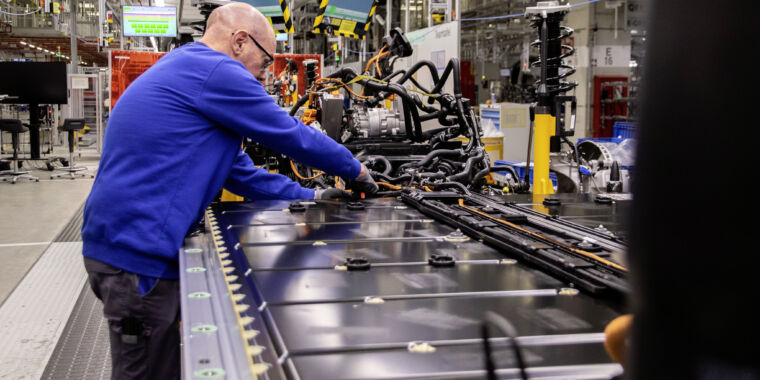Volkswagen
Volkswagen will wait to see what electric car demand is like before building out all six of its previously planned battery factories. Thomas Schmall, VW’s board member in charge of technology, told a German newspaper that “building battery cell factories is not an end to itself” and that a goal of 200 GWh of lithium-ion cells by 2030 was not set in stone.
It’s a bit too simplistic to say that all new technologies conform to the now-infamous Gartner hype cycle, but it’s hard not to think of that squiggly line when discussing EVs. After years of hearing lofty goals of all-electric lineups and an end to internal combustion engines from OEMs, Tesla’s skyrocketing valuation got investors interested in electrification, and for a while, things just went mad.
But the promised fall in battery costs never really materialized, and in the US, EVs still command a price premium, at least for the first owner. The initial hype, coupled with the limited availability of new models, saw dealers load the cars and trucks they could get with hefty markups, further alienating potential customers. And now, when those markups and inventory shortages are mostly a thing of the past, interest rates have soared.
All of that makes it pretty hard to escape thinking we’re in the trough of disillusionment, and the automakers are reacting accordingly. Both General Motors and Ford have already made their electrification plans more modest, with more hybrids and fewer EVs in their roadmaps now.
For VW, the previous goal of 200 GWh by 2030 from six factories (through a new subsidiary called PowerCo) could now be just 170 GWh capacity from three already-announced plants in Valencia, Spain; Ontario, Canada; and Salzgitter, Germany. If necessary, Schmall said that the Spanish and Canadian battery factories could be expanded to meet additional demand.
This battery news follows another sign of slowing confidence in EVs at VW. Last week, it emerged that the company has pushed back plans for the ID.4’s successor, which now may not see showrooms until 2032.
